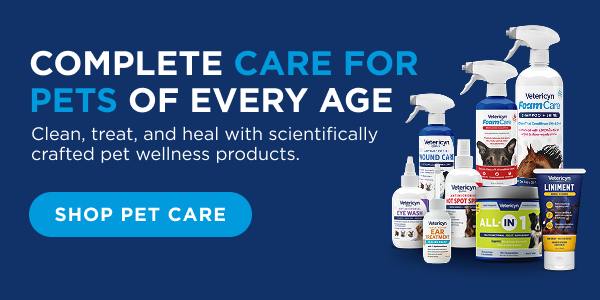Powered by Bestia Europe B.V.
Old Dog Skin Problems: Causes and Treatments
In the fight against bacteria and external irritants, dogs rely on one critical line of defence: their skin. This natural barrier provides vital protection and peace of mind for both pets and their owners.
As dogs age, their immune systems weaken, which can compromise the skin’s defences. Older dogs are also more prone to vitamin deficiencies and infections.¹ As a result, skin problems in senior dogs are common—and can sometimes become chronic.
If your older companion is constantly scratching, licking, or showing signs of skin irritation, they may be experiencing one of these issues. The good news is that constant itching doesn’t have to be a normal part of ageing. By understanding the causes, treatments, and prevention strategies, you can help your dog stay comfortable and confident in their own skin.
Common Skin Problems in Older Dogs
As dogs grow older, various skin issues can appear. Some of the most frequent include:
- Dry, thin, or cracked skin – Age reduces elasticity and the skin’s natural oils, causing dryness and cracking. Senior skin also retains less moisture, leading to flakiness.
- Itching, allergies, and irritation – While allergies can affect dogs of all ages, senior dogs are less able to fend them off due to weaker immune systems. Allergic reactions can result in inflamed, itchy skin.
- Infections (bacterial, yeast, or parasitic) – Compromised skin is more vulnerable to infection. Allergies and hormonal imbalances in older dogs can further weaken defences. Some may develop secondary infections requiring veterinary care.
- Lumps, bumps, and calluses – Frailer skin sustains more damage from pressure and contact, leading to calluses, papillomas, cysts, or other growths.²
- Hot spots (moist dermatitis) – Painful, oozing sores that form when a dog continually scratches or licks irritated patches. Thin senior skin makes them more susceptible.
- Excessive shedding or hair loss – Older dogs naturally shed more, but parasites like fleas or mites can worsen the issue.
- Immune-related lesions – Autoimmune disorders such as lupus or pemphigus, more common in older dogs, can cause lesions and scabs.³ Veterinary evaluation is essential.
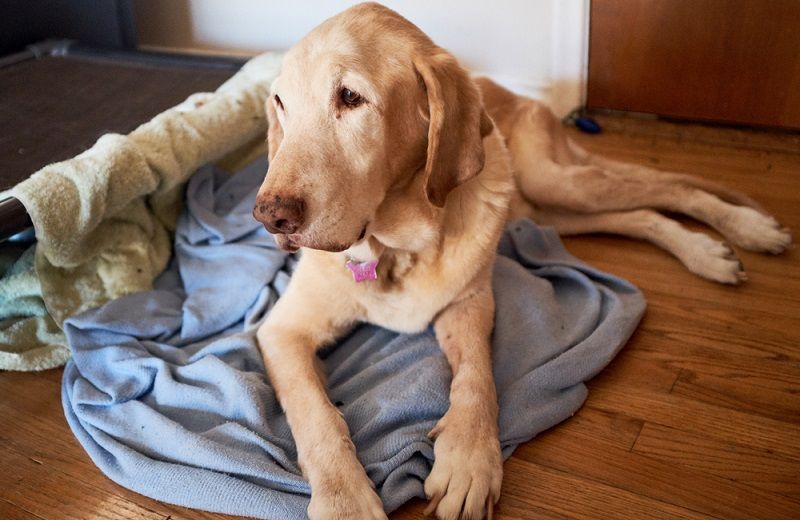
Underlying Causes of Skin Problems in Senior Dogs
To properly manage skin issues, it helps to understand their underlying causes. Common triggers include:
- Natural ageing – As immune and organ function decline, the skin’s ability to regenerate slows.
- Weakened immunity and slower healing – Wounds take longer to heal, allowing bacteria to multiply.
- Nutritional deficiencies – Ageing dogs often need extra nutrients to maintain healthy skin and immunity.
- Parasites and irritants – Fleas, mites, and ticks can quickly inflame already delicate skin.
- Systemic diseases – Conditions like hypothyroidism, liver, or kidney disease can manifest as hair loss or scaly skin.⁴
Treatment and Management
There are many effective ways to manage senior dog skin problems. The right approach depends on the cause, but a combination of veterinary care, home adjustments, and nutrition usually works best.
Veterinary Diagnosis and Professional Care
A professional veterinary examination is key. Since multiple conditions can cause similar symptoms, your vet will perform a thorough evaluation—possibly including blood tests, skin scrapings, or cytology—to determine the root cause.⁷
Avoid guesswork and seek early intervention to prevent chronic discomfort.
Topical Care and At-Home Relief
Mild or localised issues can often be managed at home using safe and soothing measures:
- Oatmeal baths – A gentle, natural way to reduce itchiness and inflammation.
- Coconut oil – Helps moisturise dry skin and ease irritation.
- Hot spot treatment – Vetericyn Plus® Wound & Skin Care Spray or HydroGel provides fast, safe relief for irritated or oozing skin.
|Keep the home environment comfortable: maintain humidity in winter, wash bedding frequently, and manage outdoor allergens. Regular grooming helps prevent matting and debris buildup.
Supplements and Nutritional Support
Sometimes, ageing skin simply needs an internal boost. Supplements can strengthen both skin and coat:
- Omega-3 fatty acids – Support skin, joint, and heart health in older dogs.⁵
- Targeted daily support – Vetericyn ALL-IN® Senior supplement delivers essential nutrients for immune function, skin resilience, and cognitive support.
Prevention for Long-Term Skin Health
To maintain healthy skin throughout your dog’s golden years:
- Parasite control – Keep up with flea and tick prevention, especially in warmer months.
- Balanced nutrition – Feed a complete, nutrient-rich diet and manage allergies with elimination trials if needed.
- Routine grooming – Regular brushing and gentle cleansing with Vetericyn pet shampoos help remove dirt and reduce irritation.
- Regular vet check-ups – Annual health checks catch underlying issues early.⁶
When to See a Vet
Contact your vet promptly if you notice:
- Persistent itching or open sores that don’t improve
- Lumps, bumps, or calluses that worsen over time
- Sudden hair loss or skin discolouration
- Signs of pain such as whining, restlessness, or sensitivity to touch
Your vet may perform a full physical assessment, skin cytology, or even biopsies and allergy testing to identify the cause.⁷ Early diagnosis ensures faster recovery and comfort.
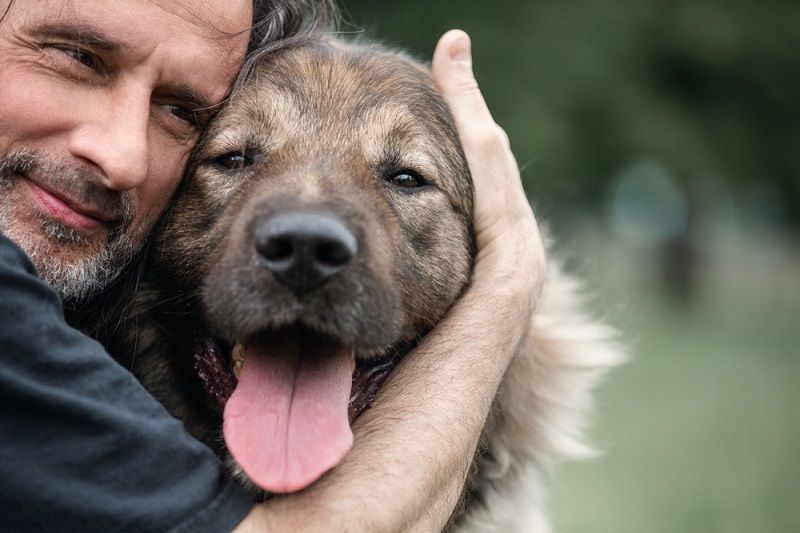
Supporting Senior Skin Health with Vetericyn
As your dog ages, their care needs evolve. With consistent attention, proper nutrition, and proactive skin support, you can help your senior dog stay healthy and comfortable for years to come.
Vetericyn’s award-winning range offers science-backed solutions to support skin, coat, and overall wellbeing. From wound care and ear rinses to supplements for every life stage, you can trust Vetericyn to help your companion thrive.
References
- AM PM Ideal Pet Care. Pet Nutrition: How to Recognise and Treat Nutritional Deficiencies in Pets. https://www.ampmidealpetcare.com/blog/pet-nutritio...
- Michelson Found Animals. Senior Pet Health: Canine Lumps & Bumps. https://www.foundanimals.org/senior-pet-health-can...
- Cornell College of Veterinary Medicine. Canine Skin Autoimmune Diseases. https://www.vet.cornell.edu/departments-centers-an...
- Merck Veterinary Manual. Whole-body Disorders that Affect the Skin in Dogs. https://www.merckvetmanual.com/dog-owners/skin-dis...
- PetMD. Fish Oil for Dogs: Benefits, Dosage, and Vet Pick. https://www.petmd.com/dog/general-health/fish-oil-...
- VCA Animal Hospital. Senior Dog Care – Special Considerations. https://vcahospitals.com/know-your-pet/senior-dog-...
- Mountain Star Veterinary Specialists. What to Expect: Pet Dermatology. https://mountainstarvs.vet/what-to-expect-dermatol...
Refine by
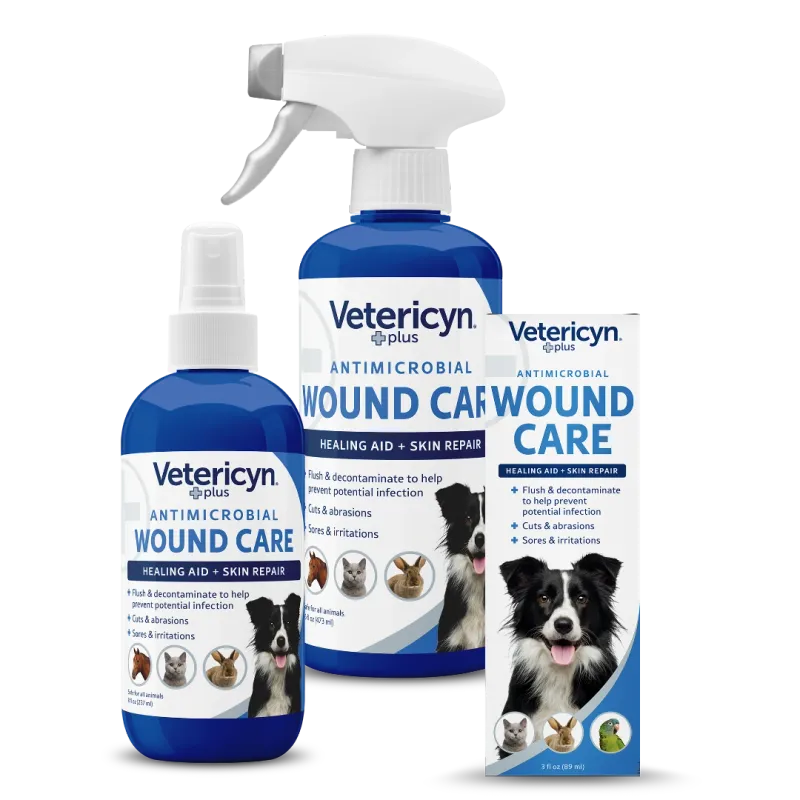
Vetericyn Plus All Animal Wound and Skin Care
Vetericyn Plus All Animal Wound and Skin Care
Jump-starts the natural recovery process. Advanced cleaner. Works effectively on localized itching.
€12,36
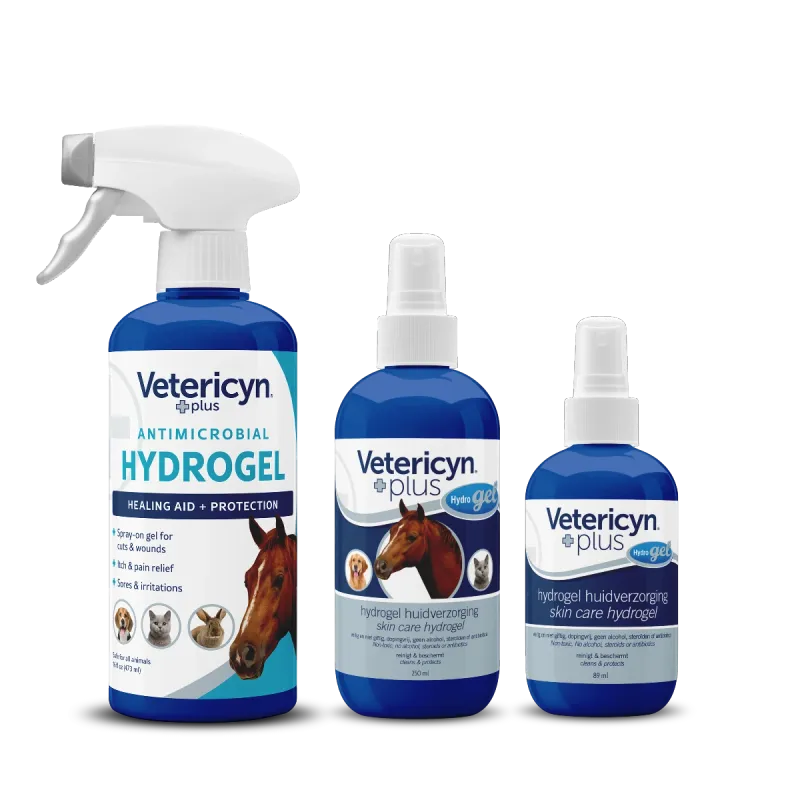
Vetericyn All Animal HydroGel Spray
Vetericyn All Animal HydroGel Spray
Soothing care for skin localized itching and skin problems.
€16,95
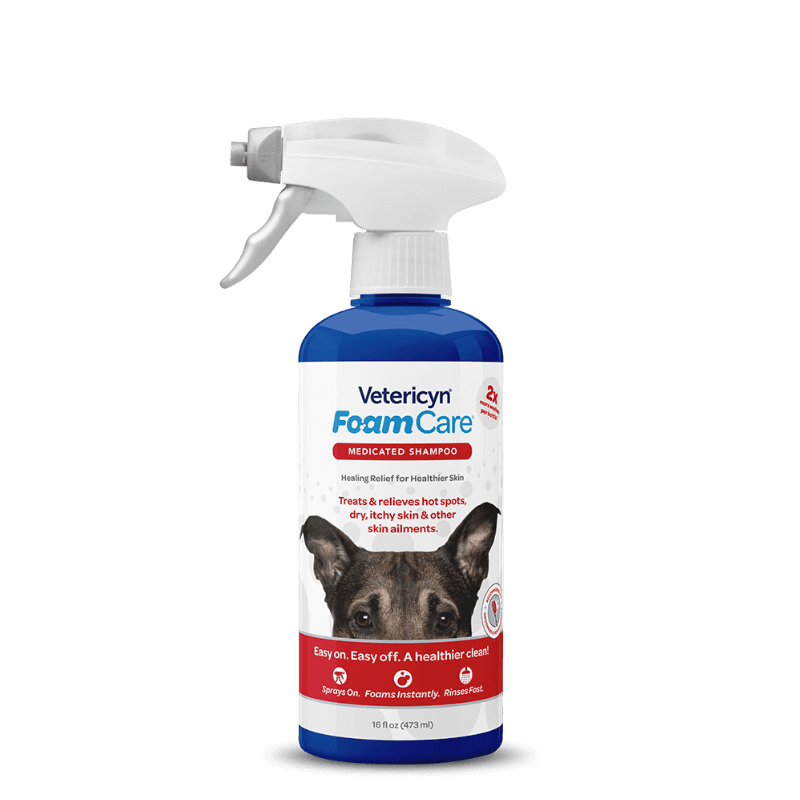
Vetericyn FoamCare Medicated Pet Shampoo
Vetericyn FoamCare Medicated Pet Shampoo
Itching - Hot spots - Dry skin - Dermatitis - Other skin ailments
€23,10
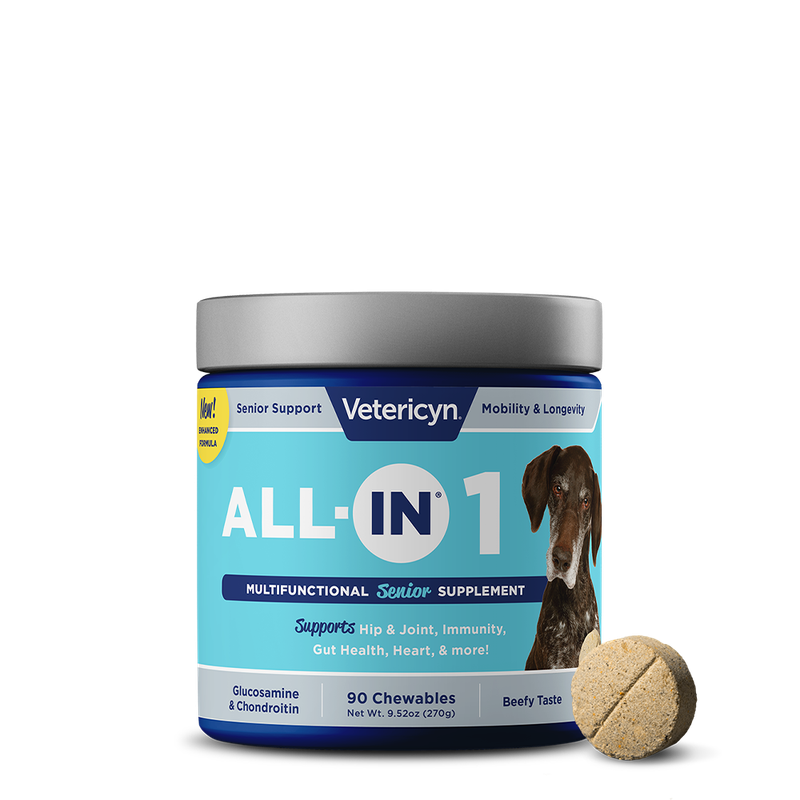
Vetericyn ALL-IN Senior Dog Supplements
Vetericyn ALL-IN Senior Dog Supplements
Mobility and rejuvenation. A formula protected by 8 patents. Proven absorption of the ingredients.
€28,88
Free Shipping
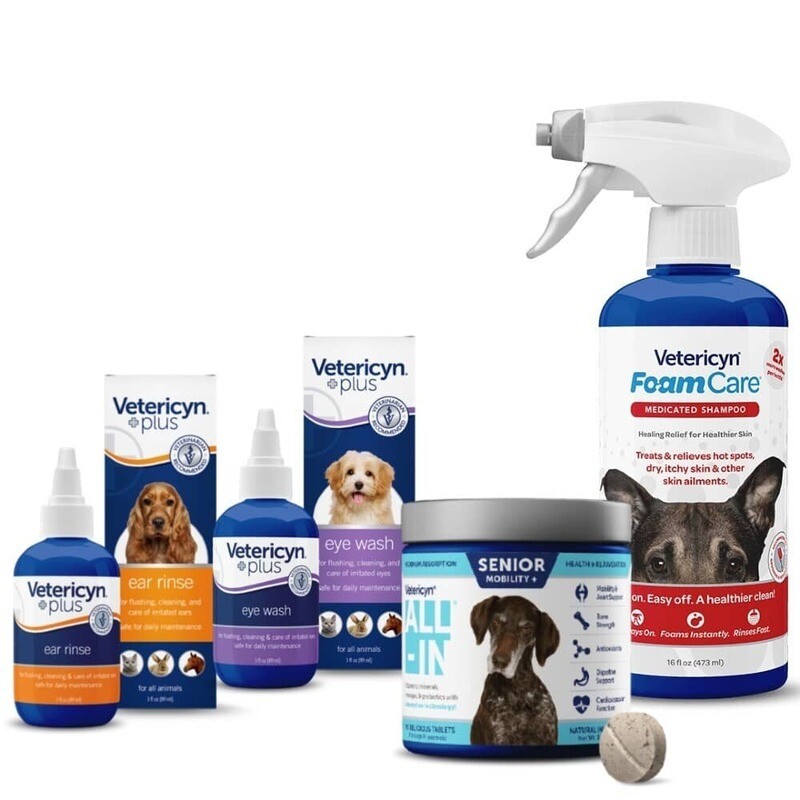
Vetericyn "Senior Dog" Support Pack
Vetericyn "Senior Dog" Support Pack
Optimal care for senior dogs, mobility and rejuvenation, 100% safe and proven effective.
was €79,21
Save 17%
€66,07
Lowest price in 30 days: €79,21
Display prices in:EUR
